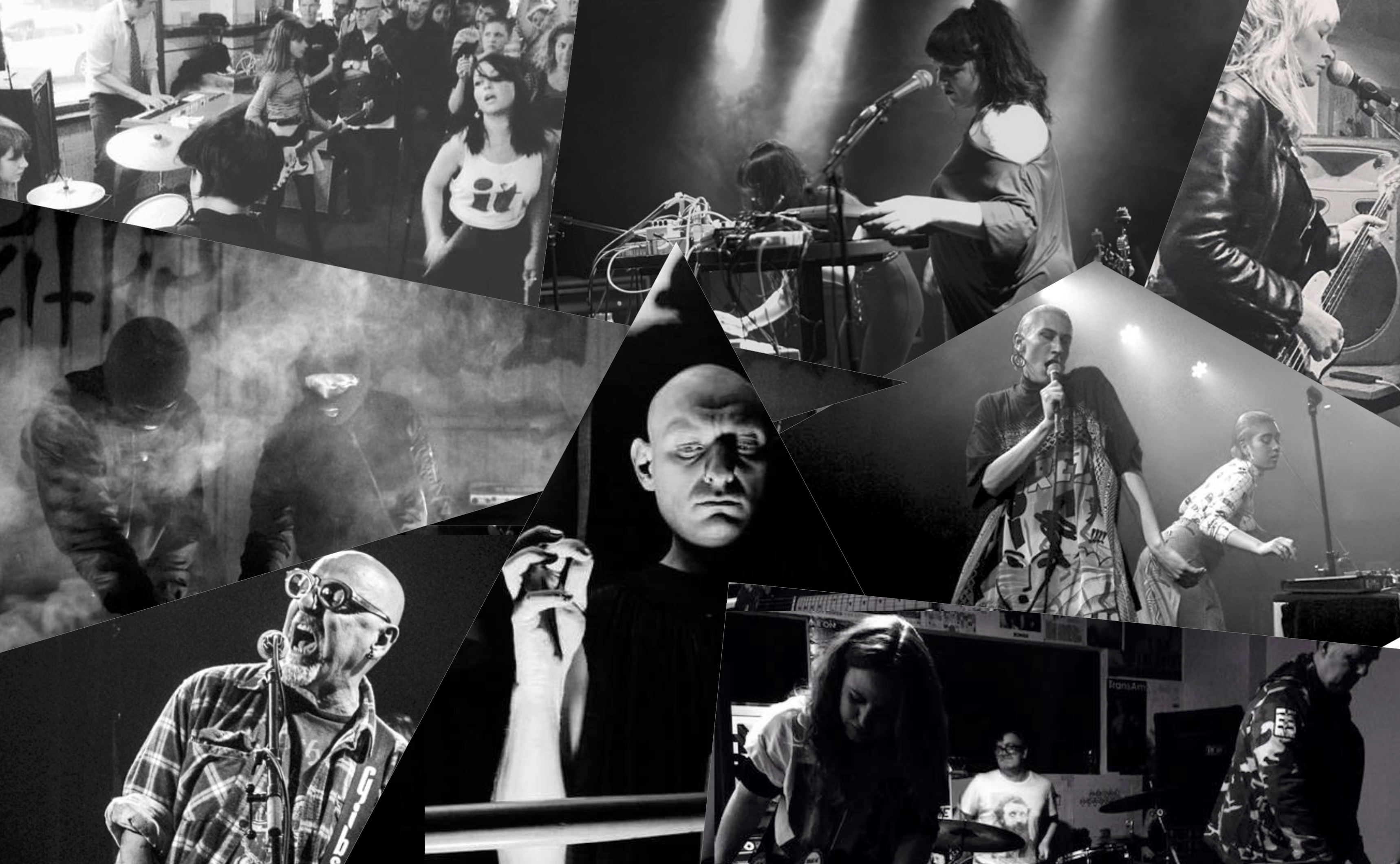Melbourne’s music community has a compulsive nerve more sensitive than any Yeezy fanatic or tech buff put together. A fibre so receptive that the slightest sniff of a riff, drum or synthesiser foray is all it takes for eyebrows to prick and instincts to shudder.
When Kate Reid heard of Liam Kenny’s desire to put out his first record away from the twang of Bitch Prefect, Peak Twins and his numerous other projects, before she could sing do-re-mi, A Kenny For Your Thoughts was on the train tracks. Being the accomplished musician Kenny is, there was obviously merit to his work, nonetheless, Reid’s selflessness and geniality were the tipping points in It Records’ first product.
From Liam Kenny, Reid has ventured into dark territories, bringing on the likes of heavy synth purveyors Taipan Tiger Girls, Time For Dreams, Miles Brown and more. For all her unheralded work, Kate Reid’s one-man project, It Records, is our Record Label of the Month for September. We caught up with Reid to chat the label’s aesthetic and her opinion on the state of the underground music industry.
Beat: Hey Kate, how did It Records begin?
Kate Reid: “It was a pretty spur of the moment decision on my part. I had a friend, Liam Kenny, making his A Kenny for Your Thoughts album and he was having trouble finding a label so I was like, “I’ll help you put it out.”
“I guess I was more thinking – “I’ll give you a couple of thousand dollars and we’ll press it ourselves and put it out”, but it kind of snowballed pretty quickly. A few of my friends in bands were like, “I’d put a record out with you if you started a label” and within a couple of weeks I had four or five people interested which was surprising. That was It Records.”
Beat: Were you doing anything prior that prepared you to starting a label, or were you going in blind?
KR: “Running a record label has made sense as part of my personality. For someone who’s not a musician, I think a lot about music in a kind of strange, weird, analytical way which helped. I’m a real rock music nerd, I collect records and I do shows on RRR and nearly all of my friends are musicians –I’m usually the only one in the room that’s not.
“It was a way for me to be involved without having to start a band I suppose. Socially, I’ve always been really supportive of lots of bands and when you get a relationship within the Melbourne music scene, people start to show interest and I was really lucky with that.”
Beat: Everywhere you tread, people are singing It’s praises, how supportive has the Melbourne scene been to the label?
KR: “It’s been amazing. I really don’t think I could’ve achieved what I’ve achieved in such a short time without the people around me. There’s nowhere else in the world I could’ve started a label as a solo entrepreneur with the little money I had but radio have been amazing, journalists have been amazing, even other labels.
“I wouldn’t have been able to do it without Guy (Blackman) and Ben (O’Connor) from Chapter Music always giving me advice, Richard (Stanley) from Aarght Records, Sophie (Miles) from Mistletone and everyone else. Anyone that I ever speak to is always happy to help.”
Beat: Are you able to pinpoint some of the advice these label-heads have given you?
KR: “Sophie from Mistletone once said to me, “don’t spend money,” which is probably the best advice because it’s really hard not to.
“Everything you spend just comes off, it’s not like you can recoup it. The records cost a certain amount and then if something comes up, you have to throw another 200 bucks at it, then it’s 200 bucks less than you can possibly get back.
“At the end of the day, when you put out a record, if it all goes 100% perfect, you’re only making a little bit of money – like hundreds of dollars, not thousands. There’s no money here.”
Beat: Your music’s everything from psych rock to heavy synth and dark wave, do you have a philosophy with what genres you bring on board?
KR: “Genre-wise, it’s not really a factor. I’m happy to put out any type of music which is one of the reasons I have such a plain name, It. It doesn’t really have any connotations.
“There is an aesthetic theme between the bands. I definitely think of it as a curated label – I see connections between the different bands on the label and see relationships between the different types of music.”
Beat: Can you describe that further?
KR: “There’s definitely a darkness in common with a lot of the music and an experimental edge that’s more prevalent in some bands than others. But it’s not something that’s easily articulated which is why it’s important – sometimes with the things that you like, it is difficult to articulate why you like them but there’s something that you have in common with the music that’s personal.
“Each band has something in common and it’s hard to put a finger on it – except to say that what they have in common is me.”
Beat: Do you feel like you have to see the band live before you start a relationship?
KR: “Except for Liam Kenny’s record which has never been played live, I haven’t teamed up with a band I haven’t seen live. I wouldn’t discount it though – there have been records sent from people interstate that I’ve been interested in but not been in the financial position to take on a new project at the time we’ve communicated.
“It’s very hard to afford this and it’s not the greatest time in the history of music selling for making a profit. Some records do better than others but mostly it’s a pretty slow turnover on getting your money back. Usually, there’s a lot of financial considerations with bringing anyone onto the label.”
Beat: I was going to touch on that, is there an element of sacrifice to running an indie label?
KR: “It is very hard and time consuming work and at this point, I’m not making money on it. But that’s ok, hopefully those things will get better in time.
“I get an amazing amount of things out of running the label. It’s really enjoyable and it’s really exciting and the people I have in my life because of it are really extraordinary.
“There’s an element of altruism to it. I do believe that in this capitalist climate, you have to put your money where your heart is. If people aren’t willing to support the underground music scene, it’s in real trouble. The Australian music industry at large doesn’t really pay much attention to the underground music scene and the reality is, if labels like Aarght Records, Chapter, even mine, hadn’t been willing to do a lot on unpaid work over the years, where would these records be?”







